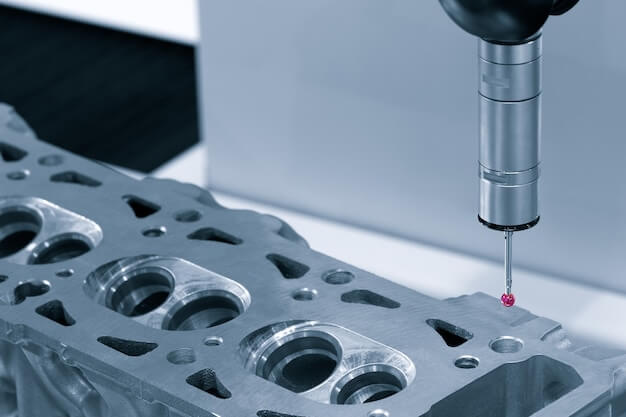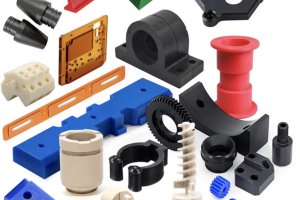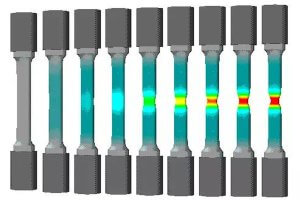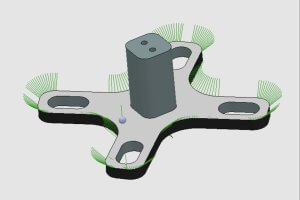Exploring the Potential of Inconel in High-Temperature CNC Applications
In manufacturing industries, one material that has garnered significant attention for its high-temperature properties is Inconel. This alloy, primarily made up of Nickel and Chromium, exhibits excellent resistance against oxidation and corrosion, even at extremely high temperatures. Its outstanding strength and toughness make it a suitable choice for applications involving exposure to extreme heat, pressure, or aggressive chemical environments. On the other hand, Computer Numerical Control (CNC) is a process widely used within these industries due to its capacity for accurate and repeatable operations on materials. With this technology’s aid, complex precision parts can be produced with minimal human intervention. Thus, combining the resilience of Inconel with the efficiency of CNC not only boosts productivity but also extends product life cycles, significantly impacting both functionality and cost-effectiveness in high-temperature based manufacturing applications.
High-Temperature Characteristics of Inconel
Inconel, a superalloy made up mostly of nickel, exhibits high resistance to extreme temperatures. This what makes it an ideal material for high-temperature applications. Its unique microstructure, comprising stable austenite, allows it to maintain its strength even under intense thermal stress. It retains critical mechanical properties such as tensile strength and toughness at elevated temperatures that can exceed 1000°C.
The suitability of Inconel for high-temperature operations is evident in aerospace engineering. For instance, one particular application worth noting involves the production of jet engine components. These parts continually experience high operating temperatures. The use of Inconel in these situations ensures optimal performance despite the thermal strain. Furthermore, thanks to its remarkable corrosion resistance, this alloy proves invaluable in preventing damage due to oxidation and other chemically aggressive conditions often encountered in such settings. As such, not only does Inconel withstand high heat, but it also extends the lifespan of the units where it’s employed.
Exploring the Benefits and Efficiency of Inconel in CNC Processes
Inconel offers exceptional performance in high-temperature CNC applications, making it a valuable investment for industries requiring heat-resistant components. Its superior strength, corrosion resistance, and oxidation properties make it ideal for aerospace, automotive, and oil and gas applications. With the ability to maintain its structural integrity in extreme environments, Inconel proves to be a reliable choice for achieving precision and durability in CNC processes.
Investment Aspects Associated with Inconel
The cost implications and long-term investment returns of utilizing Inconel in high-temperature CNC applications play a crucial role. Inconel, although more expensive than traditional metals used in these applications, offers superior durability and strength at extreme temperatures, leading to increased lifespan and reduced maintenance costs.
- Cost Implications: The initial expense for Inconel is significantly higher due to its rare constituent elements and complex manufacturing process. However, the associated operating costs could be lower since it can withstand arduous conditions for longer durations without failure, resulting in fewer replacements or repairs.
- Long-Term Investment Returns: Despite its hefty initial cost, the use of Inconel represents an excellent long-term investment. Its longevity and robustness bring financial benefits over time, slashing operational expenses and offering improved efficiency.
- Example Analysis: For instance, consider two companies: one using Inconel parts and another conventional metal parts in their respective high-heat CNC processes. While the one opting for Inconel may face a higher upfront expenditure to acquire comparable components initially, they are likely to encounter lesser breakdowns and consequent production losses, seeing elevated total yield and potentially better return on investments over the years.
Hence, though Inconel presents a substantial first-time investment, it exhibits potential profitability as a tangible economic asset in industries requiring reliable high-temperature operations without sacrificing performance quality.
Comparing Inconel to Other Metals in CNC Processes
In high-temperature Computer Numerical Control (CNC) applications, the choice of metal significantly impacts performance, durability, and cost. Among all metals used in CNC processes, Inconel stands out for its unparalleled capability to withstand extreme heat and pressure conditions. For instance, when compared with stainless steel, a commonly used material, Inconel consistently exhibits superior strength and stress-corrosion cracking resistance at high temperatures.
- Performance: High-performing materials like Inconel are ideal for strenuous environments encountered in aerospace or marine engineering that demand excellent resistance to corrosion and oxidation.
- Durability: Despite being harder to machine than other alloys such as Aluminum or Stainless Steel, Inconel is lauded for its exceptional toughness and durability. It ensures prolonged lifespan of components even under punishing circumstances.
- Cost: However, that level of quality comes at a price. Manufacturing parts from Inconel tends to be more expensive due to complexities associated with the cutting process and tool wear. Thus businesses need to evaluate if the additional expenditure warrants the performance boost.
To summarize, while Inconel’s mechanical properties pave the way for superior performance and durability in high-temperature CNC applications, operators need to weigh these benefits against the higher production costs involved.
Is It Worth Investing in Inconel?
In the realm of high-temperature CNC applications, the potential advantages of using Inconel are noteworthy. Key qualities underscored throughout our discussion include its remarkable resistance to corrosion and oxidation even in extremely high temperatures, exceptional strength, and durability compared to standard materials for CNC machining like stainless steel. The beneficial attributes combine compellingly, making it an efficient choice for demanding sectors such as energy or aerospace despite initial higher cost.
The evident aspect constitutes several increased lifetime savings by reducing breakage, replacement costs, and maintenance intervals which invariably justify expenditure on Inconel. Fundamentally, Inconol optimises operational reliability thereby streamlining production processes. Here’s a brief overview:
- Superb Corrosion & Oxidation Resistance: This enables lasting performance even under severe conditions thus minimising the risk of malfunction
- Exceptional Strength & Durability: By virtue of these aspects, usage period is optimised mitigating frequent replacements
- Higher Initial Cost Offset by Long-Term Savings: Though Inconel can seem pricey initially, the wear-and-tear saving for components compensates this over time
Henceforth, investing in Inconel for CNC applications presents a worthwhile venture, stipulating proven benefits from technical principles through to economic considerations.
Other Articles You Might Enjoy
- The Intricacies of Bead Blasting in CNC Machining(snap fits Nelson)
Bead blasting is an indispensable technique widely used across various industries, including the world of Computer Numerical Control (CNC) machining. It plays a pivotal role in perfecting machined parts and…
- Zinc Alloy vs. Aluminum for Die Casting: Which Material Wins?
Introduction to Die Casting and Material Selection Die casting is a well-renowned manufacturing process used in the production of various intricate metal parts, where molten metal is forced into a…
- Mastering Bead Blasting in CNC Machining(snap fits Faithe)
Bead blasting, an essential process within the realm of Computer Numerical Control (CNC) machining, has revolutionized the manufacturing industry. Industry professionals worldwide regard it as a critical finishing operation for…









